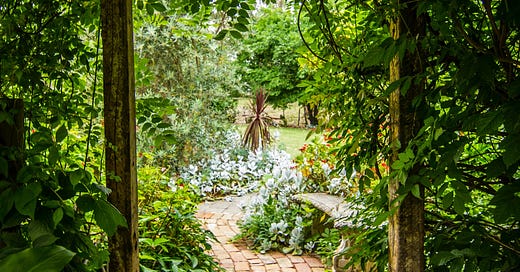Placemaking the balance sheet
A well-ordered capital structure can create a sense of refuge and opportunity. Building what JPMorgan CEO Jamie Dimon calls a "fortress balance sheet" allows you to pass through the valley of the shad
If you've ever lain awake at night fearful—perhaps even tearful—of how you'll pay your bills at the end of the month, you'll know that the state of your finances has a direct impact on the state of your faith.
It's easy to think about the income you have coming in as a way to derive hope from your finances. However, another way to think about it is through the balance sheet, like how much money you have in savings or even what assets you could collateralize for access to loans.
A well-ordered capital structure can create a sense of refuge and opportunity. Building what JPMorgan CEO Jamie Dimon calls a "fortress balance sheet" allows you to pass through the valley of the shadow of death to lie peacefully in green pastures. On the other hand, a poorly-ordered one can create fear and stress, swallowing a person in despair. I've certainly felt both emotions in my short little life.
Some philosophical geographers call this concept a "sense of place," one of three components of place. The other two components are location and locale, which will be explained in a second. The term "sense of place" is usually applied to physical places, but I would argue that we can apply the concepts of placemaking to intangible places like financial statements since they instill in us real senses of fear or hope in the present as well as in the future.
Let me explain. Philosophers and human geographers frequently define place by its components: location, locale, and sense of place. All three components comprise a single place. Think of New York City. The city has a location that can be noted on a map, yet the city itself is more than a dot on a map. It also has a locale that is full of things like sights, sounds, smells, objects, systems, and, of course, people. But New York City is also more than its locale. It's a state of mind. In other words, the city also has a sense of place to each person, much like one's home has a sense of place.
My friend David Larsen describes in his book The Place of God at the Bookends of the Bible that New York City's sense of place, "though invisible to the eye, is deep and varies from person to person. Some feel inspired by the sense of place, while others feel oppressed. Some have good memories about past Broadway shows and good meals, while others think of pain and violence. Some sit on planning and zoning committees where future plans for the city are discussed and implemented, while others protest those same plans. A place can differ in its sense of place from person to person and can even vary for the same person throughout their lifetime."
Placemaking, in simple terms, is the act of producing a place. As such, we can work toward building a place in our finances that provides present peace and future opportunity.
For instance, I used to think that saving three months' expenses was a wise rule of thumb for handling your money. But last year, when we had a baby and had no income—through losing a job and taking time off for maternity—my wife and I burned through our savings faster than we wanted.
My sense of place in our finances fell into total fear and anxiety. As a result, I have updated the wisdom and ethics surrounding my financial place to better endure the tragedies that inevitably befall each of us in our lifetimes.
To make this concept more concrete, think of your finances like a garden. This is your place. You design your garden with certain assumptions, worldview, and frameworks to bring about the vision in your mind. You then plan for challenges like the weather, pests, and the neighbors' dogs peeing on your beautiful creation.
The same could be said of finances. You design your lifestyle based on certain assumptions and frameworks—you educate yourself, choose a job, and plan your vacations all based on the vision in your mind. Then you can plan for challenges by saving, diversifying your income, and buying insurance.
The point is that you're trying to build a beautiful place, much like a gardener works toward a beautiful garden. Planning and executing well creates a place where bees and butterflies can visit and nourish their families. The shade and a water feature create a sense of calm and relaxation. So it is with a free-flowing income statement and a tidy balance sheet.
I'm toying with this concept to explore what more research might look like. What I like about this idea is that it combines many disparate domains of thought into a unifying theory. It's at once esoteric and intellectual while at the same time practical and useful.
More to come. Thanks for reading.



